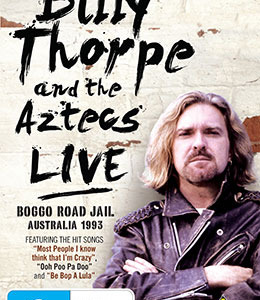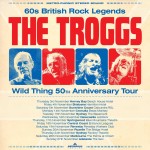How Did Bo Diddley Become an Important Rock Pioneer?
From the iconic Back in Black album to the unforgettable melodies from Mama Cass, it’s always a treat to relive the era of eighties and seventies jukebox music. Bo Diddley is another musician who ruled the airwaves in the ‘60s and beyond, leaving pivotal contributions to rock ‘n’ roll along the way.
The following is an intriguing journey into the life and times of rock pioneer Bo Diddley. It decodes how he revolutionised the genre, highlights his unique sound techniques, and details his successful career milestones.
Emergence of Bo Didley
Early life and aspirations
Born as Ellas Otha Bates in Mississippi in 1928, Bo Diddley was known for his iconic rectangular-bodied guitar and his infectious rhythms. Diddley’s aunt raised him, and music quickly became his passion. He turned his love for violin into learning the guitar, showing early promise with his unique, vibrant sound that he honed at the Ebenezer Baptist Church in South Side, Chicago.
Entry into the music scene
An intriguing part of Bo Diddley’s early music career was his transformation from a violinist to a groundbreaking guitarist. It is believed that a homemade instrument he saw a fellow musician playing served as the inspiration for his ground-breaking rectangular-bodied guitar. In the early 1950s, Chicago’s vibrant rhythm and blues scene provided the perfect backdrop for Diddley’s unique style to shine.
It was in a local club where his compelling, vocal-centric performances grabbed the attention of Leonard Chess, co-founder of Chess Records. Signing to Chess Records in 1955 served as a turning point for Diddley. His debut single, ’Bo Diddley’, not only set audiences’ feet tapping but also ushered in a new rhythmic format that came to be known as the ’Bo Diddley Beat’.
Bo Diddley’s musical innovations
The Birth of the ‘Bo Diddley Beat’
The ‘Bo Diddley Beat’ didn’t emerge by chance. His unique sound had roots in the African-American musical traditions he was exposed to early in his life. A distinct percussive blend of syncopation, repetition, and hard-driving rhythm, the Bo Didley Beat became instantly identifiable.
It was a paradigm shift that redefined how rhythm could be used in mainstream music. And in so doing, it expanded the horizons of rock and roll, influencing generations of musicians. Songs like ‘Bo Diddley’ and ‘I’m a Man’ were instrumental in popularising this particular beat, which bridged the gap between blues, rock and roll, and rhythm and blues.
Unique sound techniques
Bo Diddley was nothing if not inventive when it came to sound techniques. Using tremolo effects and unconventional tuning, he generated a distinctive sound that made his music immediately identifiable.
His inclination to push boundaries can be seen in his pioneering use of electronic effects. In the song ‘The Clock Strikes Twelve’, he used reverb to create an unearthly, echoey sound, experimenting with the potential of electronic music before it was mainstream.
Career milestones
Significant albums
Bo Diddley’s discography is impressive, seeped in over two decades of rock ’n’ roll influence. His debut, eponymous album in 1958 became a defining moment in his career, unleashing the ’Bo Diddley beat’ to a wider audience. The bold syncopation, razor-edged guitar riffs, and his raw, gripping vocals presented an entirely new sound that shook the music industry.
In 1960, his album Bo Diddley is a Gunslinger marked a significant shift in his lyrical themes, representing his love for the old American West’s storytelling style. As his career progressed, Didley never shied away from embracing different themes and styles. In the ‘70s, The Black Gladiator veered towards funk and soul but retained consistent delivery of the signature Diddley rhythm.
Live performances
Diddley’s live performances were as electrifying as his recorded versions. These performances were often laced with his peculiar stage antics, fueling his reputation as a showman. ‘Who do you love’, his 1956 hit, was another milestone; its lyrics steeped in mysticism strummed to a hypnotic rhythm.
Despite being a versatile performer, his heart belonged to rock ’n roll, as he consistently reminded his audience with stellar performances across the world.
At Jukebox Saturday Night, we pay homage to the golden age of rock and pop by spinning rare music videos and timeless tracks that capture the essence of the ’50s, ’60s, ’70s and ’80s, bringing together a community of retro music enthusiasts.




